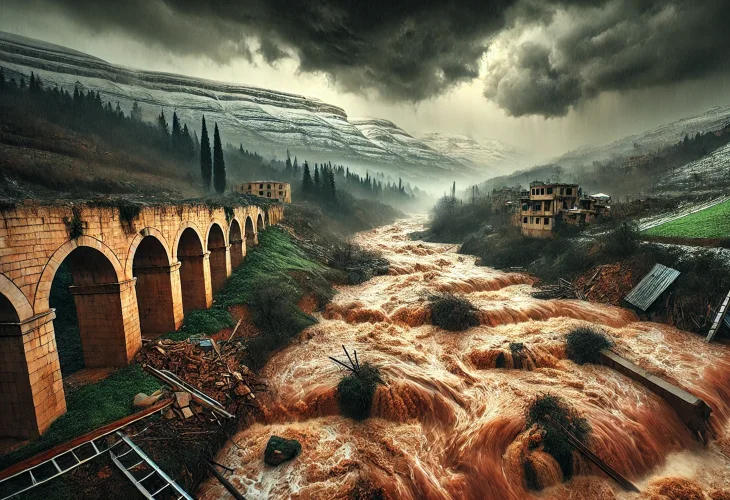History and Archaeology
When Nature Fights Back: The Flood That Defended a Synagogue
After their prayers and pleas, the Jewish community returned home to prepare for Shabbat—unaware that dark, turbulent skies were gathering, a phenomenon unseen for many years.

In 1271, Sheikh Qadir rose to prominence in Damascus. At the time, Sultan Al-Zahir ruled Syria and held the sheikh in exceptionally high esteem, elevating him above other ministers and religious leaders.
Sheikh Qadir was fiercely zealous in matters of Islam. While Islamic rule often included protected status for other religions and extended periods of tolerance, Qadir himself was anything but tolerant. During a stay in Jerusalem, he entered the Church of the Valley of the Cross, murdered the priest with his own hands, and desecrated the site. In Alexandria, he converted churches into mosques. Upon gaining power in Damascus, he launched an aggressive campaign to eradicate what he termed the “shame of wine” from the city. Since Islam forbids wine consumption, Qadir sought to eliminate it entirely—even among Jews and Christians—through violence, raids, punishments, and coercing people into signing heavy fine agreements if found in possession of wine.
It should be noted that Sheikh Qadir had joined the Sufi order and was regarded as a prophet within the Mamluk Empire. He foretold the futures of ministers and emirs, gaining immense honor and lavish gifts when his predictions appeared to come true. Sultan Baybars even named one of his sons after him, having been “prophesied” by Qadir that the child would one day rule as sultan.
Emboldened by his influence and successes, Qadir grew increasingly reckless and decided to desecrate the illustrious Great Synagogue of Damascus. This ancient synagogue was adorned with gold, silver, and magnificent carpets. During the Jewish festival of Shavuot, Qadir and his followers entered the synagogue and held a feast for dervishes within its walls. Food scraps littered the floor, and fakirs performed ritual dances in accordance with Sufi customs and beliefs.
On the Friday following Shavuot, the Jews gathered in the streets to appeal to the sultan, crying out:
“Muhammad son of Abdullah, we stand under your protection, possessing neither kingdom nor power. Please stand by us in justice, for Hashem executes justice.”
After their prayers and cries, the Jewish community returned home to prepare for Shabbat. Suddenly, the skies darkened. Ominous black clouds covered the horizon—a sight that had not been seen in many years.
A contemporary Arab historian described what followed:
“Heavy clouds crowded over the mountains of Baalbek. On Shabbat, thunder was heard, and the valleys filled with snow, combined with rain that melted it. The flood began early on Sunday, with waters originating from Ain al-Fija, sweeping massive rocks along their path and uprooting countless trees. By the eighth hour of the day, the waters reached Damascus, rising a foot above the city walls and elsewhere as high as eleven feet. The flood entered through the Paradise Gate after destroying the bridge supports at the Salaam Gate and extended to the madrasa. It rose to more than twice a man’s height. The flood lasted three hours, destroying many houses and garden towers, drowning every pilgrim without exception, along with countless camels and livestock. Rivers filled with red mud, trees were torn from the ground, and mills were swept away and ruined.”
In the aftermath, Sheikh Qadir’s reputation collapsed. Many viewed him as responsible for the catastrophic flood, seeing it as divine retribution for the desecration of the Jewish synagogue. Further investigation revealed that he was far from the saintly figure he claimed to be; he was exposed for acts of immorality and other humiliating crimes. The sultan ordered his imprisonment in a small chamber within the citadel, where Sheikh Qadir died three years later.

